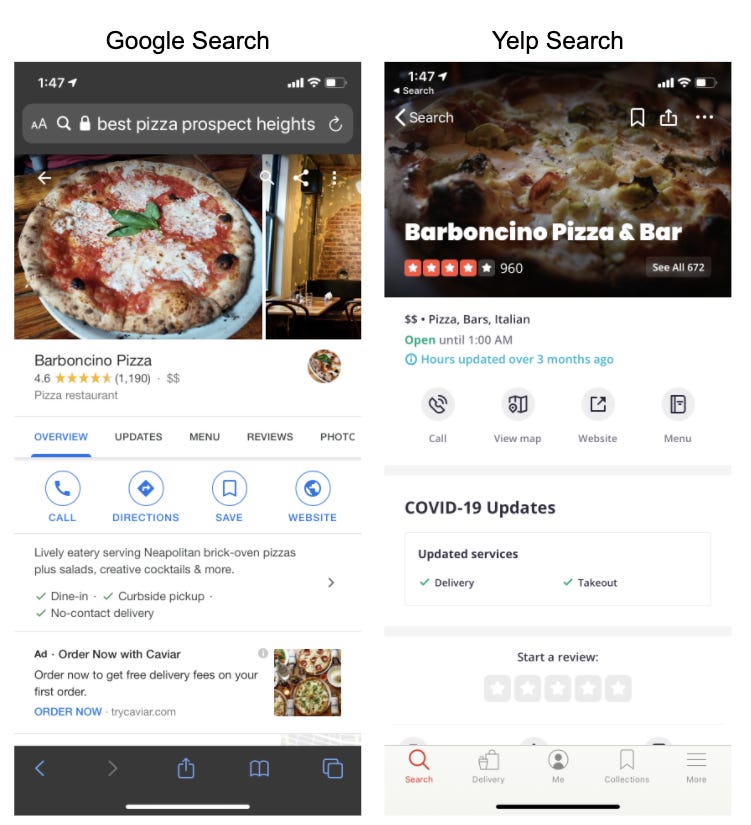#40 - Commodification Hurts
Why Yelp is Stuck in No-Man's-Land
Bars sometimes provide free salty snacks like peanuts or pretzels. The reason is simple: when people eat salty food they get thirsty, and when they get thirsty they buy drinks. QED. This is an example of commoditizing your complement.
A complement is a product that is bought together with another product, like beer and salted peanuts. Commoditizing your complement can be a lucrative strategy. As Joel Spolsky, cofounder of Fog Creek Software and former CEO of Stack Overflow writes in Strategy Letter V:
Demand for a product increases when the price of its complements decreases. In general, a company’s strategic interest is going to be to get the price of their complements as low as possible. The lowest theoretically sustainable price would be the “commodity price” — the price that arises when you have a bunch of competitors offering indistinguishable goods...Smart companies try to commoditize their products’ complements. If you can do this, demand for your product will increase and you will be able to charge more and make more.
Being on the receiving end of commoditization hurts. Yelp is a five star example.
Websites and digital information are Google’s complements. Because Google owns the demand, websites commoditize themselves to rank higher in search results. Indeed, there’s a whole industry devoted to this.
For local services, businesses create Google profiles with information like addresses, hours of operation, and menus. Consumers and critics like The Infatuation and Time Out provided reviews. Google gets this for the ultimate commodity price: free. One of the perks of being an aggregator.
As Google accumulated more information on local businesses, it was able to insert new displays like answer boxes (example below) and knowledge panels:
For Yelp, this was particularly problematic in mobile, where screen real estate was limited. Whereas Yelp’s results showed up on the first page of desktop search their results they were often hidden in mobile. From 2015 onward, the majority of Google searches have been mobile:
Commoditizing its complements enabled Google to push deeper into local services, which make up about one-third of all search traffic. As Google added more business profiles and reviews, Yelp became more of an indistinguishable good. Ten years ago, Yelp’s reviews and listings were unique. That’s no longer the case today:
If you’re looking for a restaurant that absolutely must be good for groups, allows dogs, is liked by 20-somethings, has a jukebox, and validates parking, then Yelp is your best option. Its filtering options go deep. But if you’re just looking for a slice of pizza nearby, Google’s results are likely good enough.
Netflix is an instructive analog. Does Netflix always have the perfect content for you? No. Is Netflix consistently good enough? Yes. If you’re just looking to be entertained than Netflix will do the trick 99% of the time.
The more convenient option often wins online. This is one reason why Google’s revenue and market cap are growing, leaving Yelp with peanuts.
👉 If you enjoyed reading this post, feel free to share it with friends!
For more like this once every weekend, consider subscribing 👇





